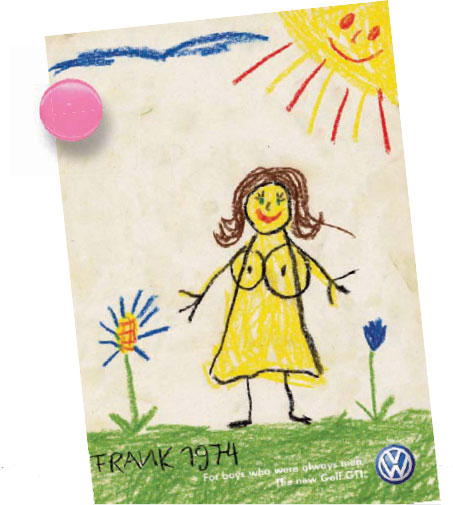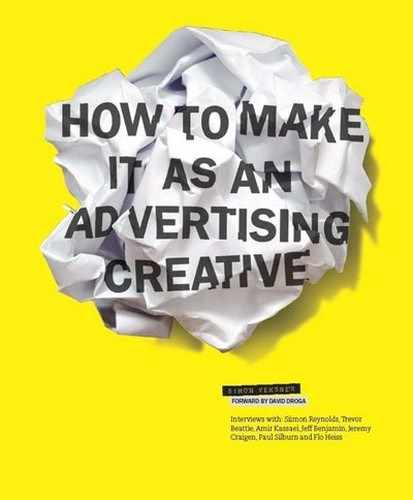Amir Kassaei

DDB GERMANY
It’s not really about where you live. But a global point of view—not only geographically, but in the sense of a very broad horizon—is more than helpful. The wider your perspective, the more it is probable you will produce innovations.
No. It’s not the theoretical age that matters. It’s about your level of maturity and also about your social and emotional competence.
A good team generates more than the sum of each individual’s talents. And each individual complements the other in terms of talent, character, and skills.
Yes. Only creatives know how an idea has been developed and why this idea is the best solution for a specific problem. Creatives are the only ones who have the passion and energy that is needed for selling an idea.
It is part of our job to have fun and try something new. Nevertheless, the main mission is to solve our clients’ problems. Having both components in balance is fine. But if you start becoming overly proud of finding solutions to non-existent problems, you will have missed your target in respect of your primary mission.
In the strict sense there have been more than 1,400 awards! But: no. Awards are a welcome confirmation that you are right. But nothing more.
Yes, because 99 percent of all creatives in the world are still producing advertising ideas instead of creative solutions. Advertising ideas help less and less in solving the client’s real marketing problems.
If you are claiming you are qualified in strategic brand management, you should understand the importance of nourishing and cultivating your own brand. But don’t make yourself more important than your last piece of work.
If we creatives don’t manage to develop and change from communication service providers to creative consultants within the next five years, we will not have the right to exist.

Politics, in a business context, has become a dirty word. And to describe someone as “political” is a major insult. This is foolish. We all know that there’s far more to doing your job well than just keeping your head down and doing a good job.
Machiavelli defined politics as “the art of getting and keeping power and authority.”
It’s essential that you master this art. Not in an underhand or Machiavellian way, necessarily. But you need to know how to maintain your power and authority.
First of all, you can’t do your job at all if you get sacked, so you need to keep on the right side of whoever can sack you.
“Many excellent creative people have been ejected from agencies as a convenient scapegoat for account losses,” former AMV and Ogilvy CD Paul Belford points out. “Or simply because a new chief executive wanted to stamp their authority on the place.”
And secondly, you need to have a certain amount of power and autonomy to do the job the way you want to do it, else you will suffer inordinate frustration.
MANAGING UPWARD AS WELL AS DOWNWARD
The best piece of advice that ECDs I have spoken to on the question of politics give is to make sure that you manage upward as well as downward.
Managing downward is what your contract says you should do. That is, getting great work out of your department. But managing upward is equally important to your long-term future at the agency. And it can put you in a difficult position. For example, imagine a conversation with a senior agency management person where they explicitly ask for, let’s say, not exactly cutting-edge work on certain accounts. It happens. Not because they really want rubbish work but because they’re terrified of losing the income from a difficult client. You can see their point.
So, in that instance, the creative director’s job is not to ensure that the work is as good as the talent in the creative department can produce. It is to produce the best work that the client is capable of buying. And of course, sub-standard work can always be held against you in the future. So what do you do? It’s a dilemma.
Treading the fine line between doing the right thing creatively and not coming into conflict with your chief executive, managing director, planning director, and any number of other senior account people can be extremely difficult. You’ll only pull it off by having good relationships with these people and the clients. And that’s what managing upward is.


